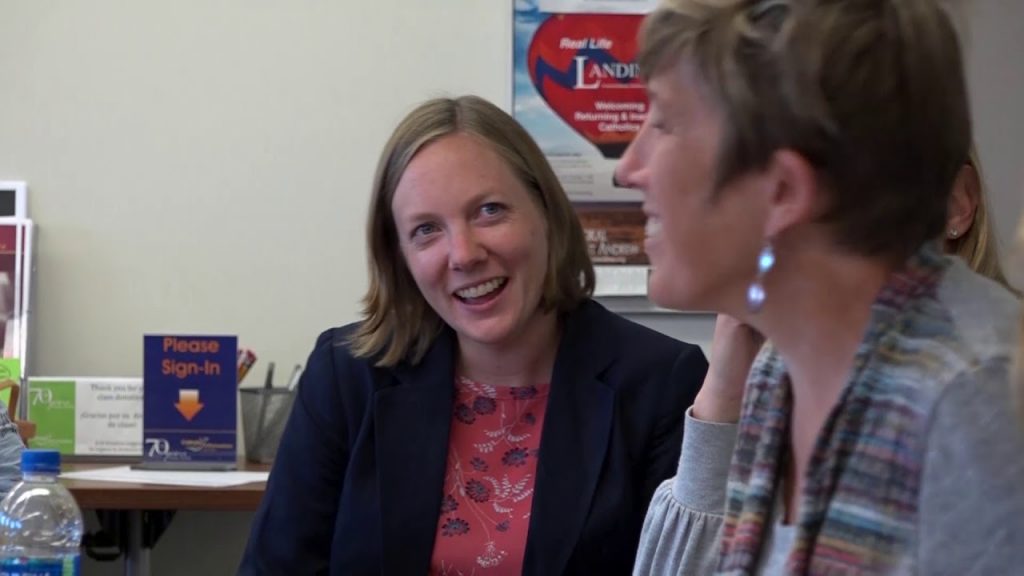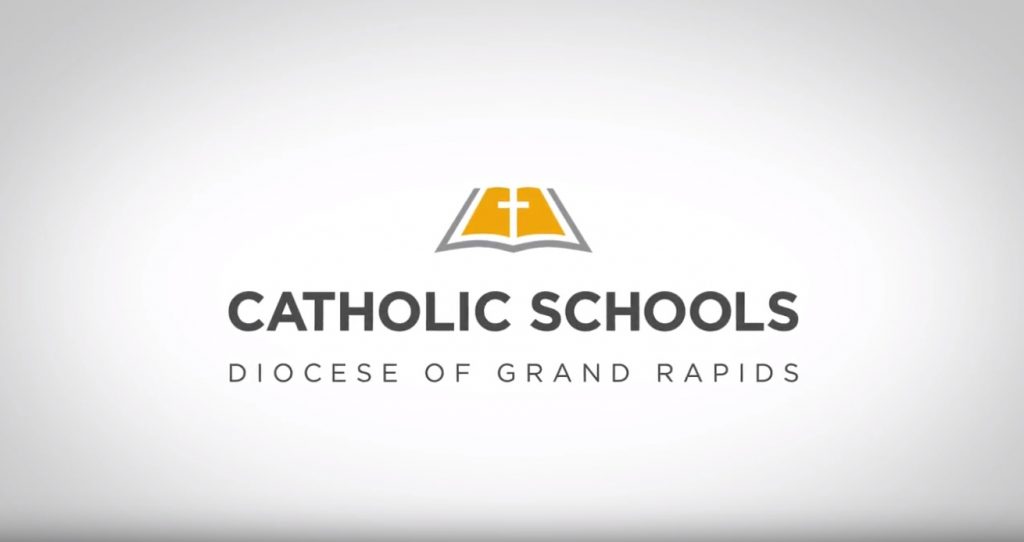The following article was contributed by Jill Annable, Assistant Superintendent, Catholic Diocese of Grand Rapids.
I love spending my days in our diocesan schools, in classrooms, teachers’ lounges, and even the car-rider lines at pickup time. These particular moments are influential, as they inform me of all the voices of each school. This ultimately impacts the decisions we make in our diocesan Office of Catholic Schools, such as updating curriculum standards and even which types of professional development our office should offer.
During my school visits in the 2016-17 school year, a particular pattern began to unfold. It became evident that each diocesan school was welcoming more and more exceptional learners; it was a consistent buzz I kept hearing and seeing. However, each school had been growing its inclusion programs in isolation. It’s not an exaggeration to say that each special educator barely knew the others, and the questions they asked me could much more easily be answered by one another. The idea was simple, really: Let’s put everyone in the same room.
From this idea, we launched our diocesan Student Support Services Network in March 2017, morphing from basic monthly meetings to robust professional development offerings for both internal and external audiences. It has been my role to schedule, facilitate, and listen during these network meetings. It’s critical that we, as leaders, produce environments that breed collaboration among our diocesan educators, and this particular group was craving collaboration.
Of course, not all schools can attend monthly meetings at our diocesan office in Grand Rapids; some are over fifty miles away. However, we didn’t leave anyone behind in our efforts to stay connected. All diocesan schools stay in contact in our email group, and each has constant access to our notes and agendas. We’ve even played with different platforms for delivering content and resources, such as the LMS interfaces in Google Classroom or Canvas. Even with the convenience of connecting virtually, most people do want to connect face-to-face, and we’ve had educators from 26 of the 31 schools attend our various offerings in person.
Many of our individual schools developed their specific student support services in partnership with the CLC Network, who has been a critical part of our story for the past decade. In addition to these school-level partnerships, we recently established a diocesan alliance with the CLC Network to provide guidance and professional development on the topic of inclusion. Together, we’ve examined resources like the CLC Network’s Christ-Centered Educational Services Standard and NCEA’s Exceptional Learners White Paper: One Spirit, One Body.
Members of our network, with encouragement from their diocesan colleagues, have felt empowered to participate in the Notre Dame Program for Inclusive Education and the Loyola University Chicago Certificate in Leading Inclusive Schools. They share their learning with our network, which ultimately sparks more educators to want to join these programs. Some have experienced shifts in their job titles over time, bridging the gap from Resource Teacher to Student Support Specialist who oversees the paraprofessionals in the building. Some have shared tangible resources, such as handbooks for exceptional learners, and others have shared strategies for interpreting student data. All have engaged in powerful conversations about their own daily work, sharing best practices and asking for input. As a result, we have experienced an incredible boost in our collective belief that we’re up to the challenge of serving students of wide-ranging abilities. We have seen that all our diocesan schools are stronger when we collaborate.
Are we perfect with inclusion? Absolutely not. Is it easy to implement broader services to welcome more whole families who desire Catholic education? Not always. However, because we are called to open wide the doors to Christ, we are reminded that all of us are children of God. We’re eager for the day when all children can attend the school of their parish community. Our Student Support Services Network has amplified this effort.
Watch our video to see members of our Student Support Services Network describe how they’ve grown through this collaboration, and to see our bishop, Most Rev. David Walkowiak, express his support for this work. We’re also grateful to Raul Escarpio for featuring this endeavor on the CatholicEd4all podcast.

